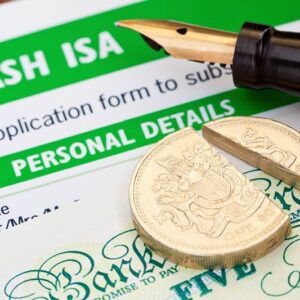Different Asset Types for Investors, Explained

This content is for information purposes only and should not be taken as financial advice. Every effort has been made to ensure the information is correct and up-to-date at the time of writing. For personalised and regulated advice regarding your situation, please consult an independent financial adviser here at Smith & Pinching in Norwich, Lowestoft and Eaton. The value of your investments can go down as well as up and you may get back less than you invested.
Perhaps you have heard of shares, bonds and other asset types but want to know more about how they work. In this guide, our Norwich financial planners offer a short guide to investment asset types in 2023 – together with ideas about how to include them in a portfolio.
Bear in mind that every investor will have different circumstances and goals. This means that certain assets – and the balance of assets within a portfolio – will differ from case to case. There is no “one-size-fits-all” portfolio that applies to all investors.
Also, everyone has their own attitude to investment risk. Some investors are more “cautious” than others. Consider speaking with a financial adviser to ensure that your investments reflect your own risk tolerance.
We hope this content is helpful. If you want to discuss your financial plan with us, please get in touch to arrange a no-obligation financial consultation, at our expense:
01603 789966
Stocks & shares
The words “stocks” and “shares” are often used synonymously because they try to represent ownership within a company. In a private company, two directors may own the company – with 50% owned by one person and 50% by the other.
When investing in publicly-traded companies (e.g. those listed on the FTSE 100 Index), this is where the word “stocks” is often more relevant. A particular company’s stock price may be listed on a stock exchange, in real time, which represents how much it costs to buy a single “unit”.
Investors can invest directly in individual stocks or, indirectly, by investing in funds. These equity funds pool multiple investors’ money to buy dozens or hundreds of shares in multiple companies. This can help investors gain ownership of more expensive stocks which may be too costly to invest in directly.
Stocks and shares can offer some of the highest growth potential for investors. However, they may also present a higher risk to capital if a company, or fund, falls in price or even fails.
Fixed-income investments
If you go to a bank for a loan, you will gradually repay it with interest, giving the lender a profit. As an investor, you can also make money in a similar way using fixed-income investments.
In the UK in 2023, bonds are amongst the most popular of this investment type. Here, you lend money to a company or government when buying a bond. The “yield” refers to the annual income generated by the bond, as a percentage of its current market price.
Bonds are considered to be generally less risky than stocks and shares. UK government bonds (gilts), in particular, are widely seen as very “safe” because the government has never defaulted on its debts. However, the potential returns from bonds are consequently also often lower.
Commodities
When investors talk of physical goods like gold, silver and oil, they are typically referring to commodities. This might involve buying a commodity in person (e.g. a piece of gold jewellery) and selling it later – hopefully for a profit.
However, you do not have to physically own commodities to invest in them. Commodity ETFs (exchange-traded funds), for example, track the performance of a specific commodity (or “basket” of commodities).
Here, the funds own the underlying assets (e.g. silver or gold) or hold the futures contracts (agreements which speculate on price movements for commodities). Investors can buy/sell shares of these commodity ETFs on a stock exchange to try and generate capital gains.
Commodities can provide some nice portfolio diversification for investors in certain cases. However, price movements are incredibly difficult to predict and some people, like Warren Buffett, do not like commodities because they are finite and difficult to forecast.
Real estate (property)
In the UK, a well-known method of property investing is buy to let. Here, an investor purchases a property with the intention to rent it out – rather than living in it.
This is just one approach, however. Investors can also invest in property indirectly using real estate investment trusts (REITs). These are publicly-listed companies that own, operate or finance income-generating real estate.
REITs can be a good option for some investors – e.g. those who want to generate a steady income from their investments via dividends. However, they are sensitive to interest rates and can be vulnerable to market downturns, particularly if the housing market is badly hit.
Cash
Many people tend to view cash as a form of savings rather than an investment. However, it is still technically an asset class in its own right.
There are many ways to hold cash in 2023. These include regular savings accounts, cash ISAs and (arguably) Premium Bonds offered by NS&I. Cash investments tend to produce a return by generating interest for the owner, although Premium Bonds offer a potential prize draw instead.
Cash is attractive to people who want to limit the impact of market volatility and risk on their savings. Indeed, cash will not fluctuate in value like stocks do on a public exchange. This can make it useful for a short-term financial goal, such as saving towards a mortgage deposit.
However, interest rates from ISAs and savings accounts usually fail to beat – or even match – inflation. This means that cash savings tend to lose value in real terms over time. As such, financial planners often recommend using other asset classes for building long-term wealth.
Conclusion & invitation
If you are interested in discussing your own financial plan or investment strategy with us, please get in touch to arrange a no-commitment financial consultation at no cost to you:
01603 789966











